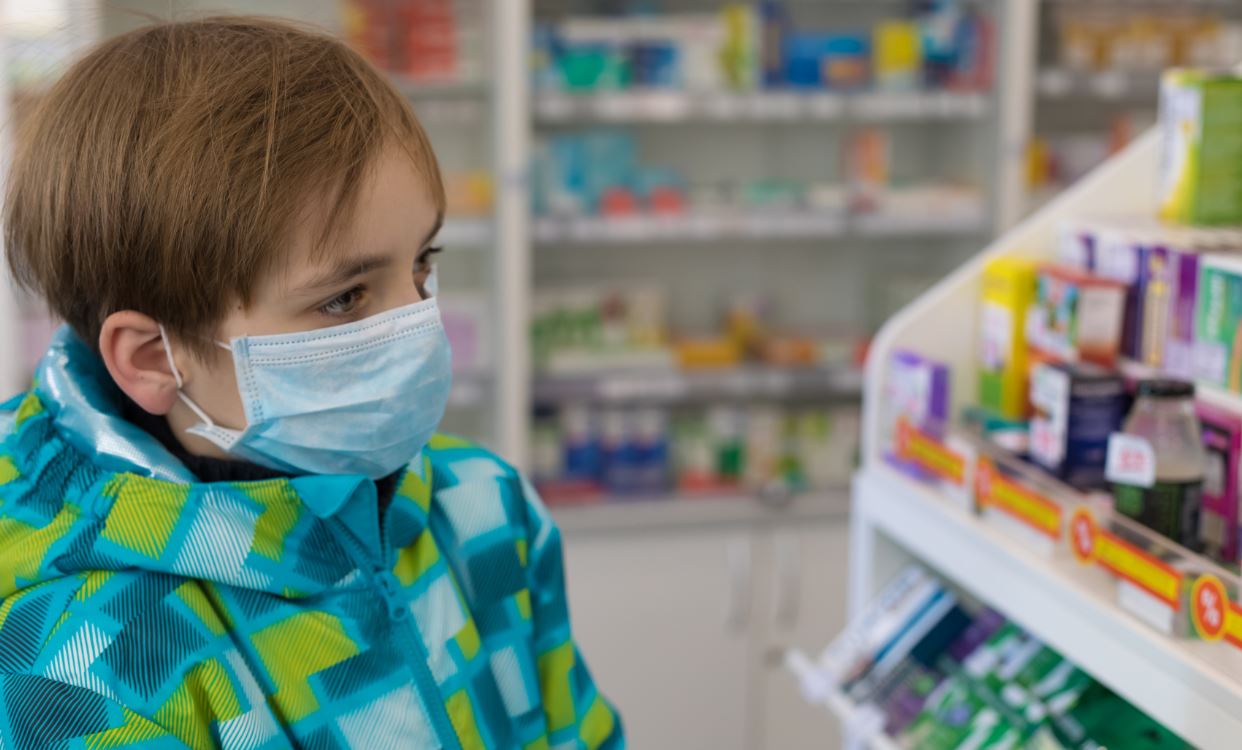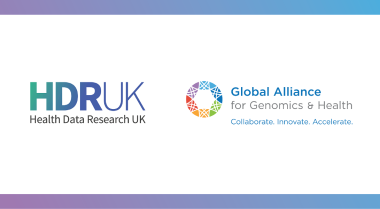HDR UK weekly COVID-19 round-up
8 April 2020
Find out the latest on the HDR UK community's work to help tackle the pandemic
Updates
HDR UK publishes list of COVID-19 priorities
There is a huge amount of work going on across HDR UK to tackle the pandemic, which is being captured in full in our Knowledge + Skills Matchmaker to help researchers collaborate across institutions, disciplines and teams. A key principle is to avoid duplication and/or a proliferation of small projects – we are therefore joining up initiatives with the purpose of supporting higher impact research.
This week we published our first list of 10 priority applied research questions. This list has been formed through a simple prioritisation process, and will help HDR UK teams to identify where best to direct expertise, time and resources towards. It aims to facilitate a transparent and objective selection of which research questions HDR UK should direct our expertise, time and resources, helping to ensure that where HDR UK central, data custodian and Alliance support is needed this is aligned to the right questions at the right time.
Applied research questions will be prioritised regularly and also be used to support our partners at NHSX, NIHR, NHS Digital and other data custodians in their own priorities.
First COVID-19 dataset made discoverable through the Gateway
Data from the COVID-19 Symptom Tracker app developed by King’s College London and ZOE (a health science company) is now discoverable via the Health Data Research Innovation Gateway. BREATHE – The Health Data Research Hub for Respiratory Care, is securely hosting the data and working with King’s College London and ZOE.
Read BREATHE’s statement on their involvement
Public and patient involvement and engagement (PPIE) group formed to rapidly support COVID-19 projects
HDR UK has formed a public and patient involvement and engagement (PPIE) group who will specifically work with teams across the HDR UK community to support COVID-19 work.
The group of over 60 patient and public representatives has been formed to ensure that PPIE remains at the heart of HDR UK’s COVID-19 work. Recruitment for participants was completed on 27 March, and so far members of the group have already been involved in several projects including our COVID-19 response strategy, a piece of research relating to an online COVID-19 risk calculator, and ideas on the best ways to communicate HDR UK’s work relating to the pandemic.
Read our blog about HDR UK’s COVID-19 strategy
Blog: A doctor’s view from the frontline – Patient care at the time of COVID and how routine health data can help
This week’s fantastic blog came from Dr Liz Sapey, Director of PIONEER – The Health Data Research Hub for Acute Care, and a doctor at University Hospitals Birmingham NHS Foundation Trust.

Projects
There are currently are a number of activities already underway that the HDR UK community is supporting aligned with COVID-19.
Updates on some of the 10 HDR UK priority projects are below. See the full list of HDR UK priority projects or visit our COVID-19 page for more information on the work that the community is doing to help tackle the pandemic.
What are the clinical characteristics of COVID-19 positive patients, what determines good and poor outcomes, and how can knowledge of this help to target clinical and public health strategies?
This research is intended to support those developing clinical and public health strategies. Recruitment of hospitalised COVID 19 positive patients has commenced with several hundred already involved. Daily reports to Department of Health are being made, and approvals and funding for key data linkages are being sought.
Institution(s) involved: BHF Data Science Centre and HDR UK
Lead: Cathie Sudlow
Can study of the whole virus genome enable scientists to monitor changes at a national scale, reveal how the virus is spreading and identify whether different strains are emerging?
COVID-19 Genomics UK (COG-UK) Consortium Samples from patients with confirmed cases of Covid-19 will be sequenced – decoding the genetic information in them – by a network of sequenced centres across the UK.
Institution involved: HDR UK Cambridge
Lead(s): Ewan Harrison, Michael Chapman, John Danesh
Can any of three existing medications (Lopinavir-Ritonavir, Interferon β or low dose corticosteroids) be effective in treating COVID 19 test positive hospitalised patients?
Ethics approval for clinical trials has been obtained, and random selection of the first patients across England, Wales and Scotland has commenced. Approvals are being obtained for linked datasets for tracking and enhancing recruitment and to track outcomes for patients.
Institution involved: HDR UK Oxford
Lead: Martin Landray
Where hospitals have electronic health records, is it possible to provide real time data to better understand differences between hospitals in patients of various ages or with different underlying health conditions?
This priority area aims to use electronic health data in ‘real time’ (i.e. almost immediately) to understand more about outcomes and treatment for COVID-19 patients of different ages and with different pre-existing medical conditions. This could help clinicians provide better care and decisions on treatments.
As part of this work, researchers at Swansea University are using COVID-19 symptoms data and open data on prescriptions in Northern Ireland using models developed in Japan and by Imperial College London to examine the impact of pre-existing conditions on COVID-19 outcomes.
Institution involved: HDR UK Wales & Northern Ireland (Swansea University)
Lead(s): Jose Sousa (Swansea) and Caroline Cake (HDR UK)
More information and tools
- HDR UK GitHub repository –The HDR UK community is developing computer-based tools and methodologies to analyse and handle health data, including those that can help overcome the COVID-19 challenge. These are all shared in a central repository, which is open to the public, so that we can all learn from each other and build on each other’s work. They are shared in HDR UK’s area of GitHub.
- COVID-19 slack channel – researcher and innovators looking to collaborate to use health data to address the pandemic can apply to join our dedicated slack channel. Complete the form to register your interest in joining here.
- Take a look at our COVID-19 page to see the latest version of HDR UK’s strategy to support efforts to tackle the pandemic



